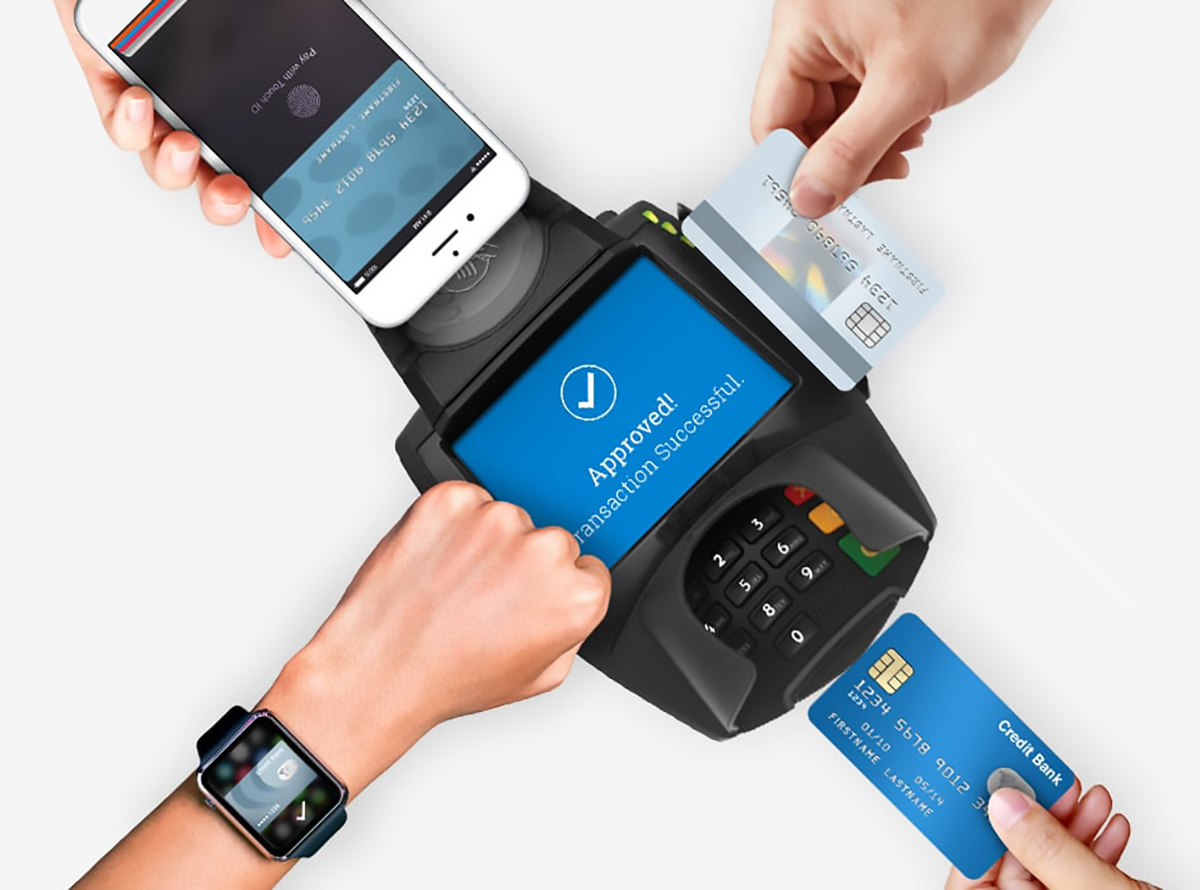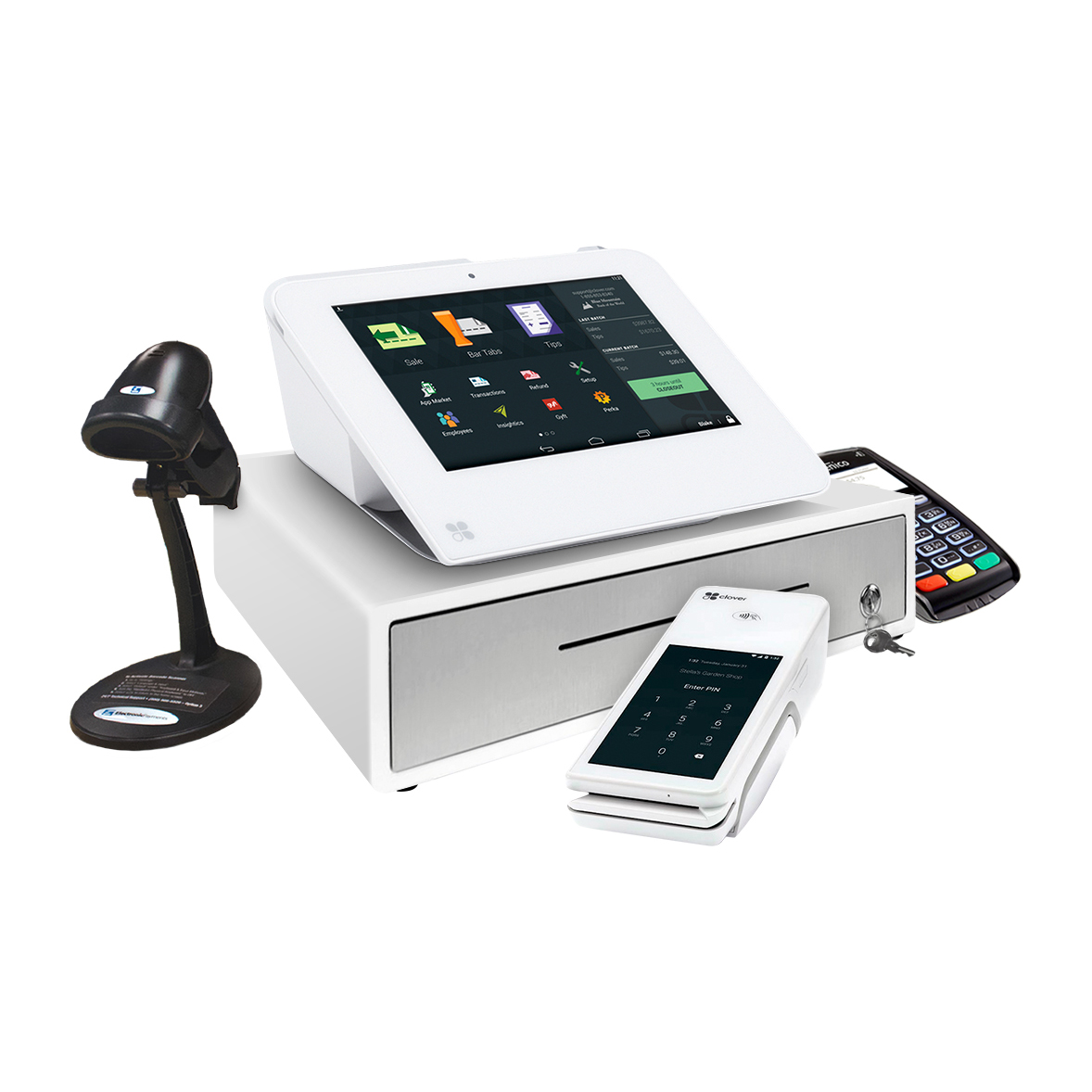Our cloud-based platform is so seamlessly integrated you would think it was part of your accounting software.





Benefits of QuickBooks Credit Card Processing Integration
When it comes to managing finances, many QuickBooks users find themselves juggling multiple platforms. QuickBooks credit card processing integration offers a seamless solution by automating payments directly within the software. This integration enables businesses to streamline accounting tasks, reduce human error, and speed up transaction time, all from one centralized hub.
By incorporating QuickBooks credit card processing integration from POS Brokers, you can not only save valuable time but also benefit from reduced processing fees. Many providers offer competitive rates and advanced security features to safeguard sensitive data. This technology can transform the way businesses handle transactions, making it an essential tool for modern accounting.
How to Implement QuickBooks Credit Card Processing Integration
Implementing QuickBooks credit card processing integration is simpler than it might seem. Here's a concise guide to get you started:
- Select a reputable payment processor that supports QuickBooks integration.
- Install the necessary plugin or application within QuickBooks.
- Configure your account settings, including payment methods and security preferences.
- Test the system with a few transactions to ensure everything is running smoothly.
- Train your team on the new system to maximize efficiency.
Each step is vital for ensuring a smooth transition and harnessing the full potential of the integration. With the right setup, businesses can enjoy uninterrupted service and improved financial management.
What Challenges Might Arise with QuickBooks Credit Card Processing Integration?
While QuickBooks credit card processing integration offers numerous advantages, it's not without potential challenges. One common issue is compatibility between different versions of QuickBooks and third-party processors. Before proceeding, ensure that the payment solution you choose is fully compatible with your version of QuickBooks.
Another concern is data migration. If you're switching from another system, transferring customer data can be complex. It's crucial to have a backup and a clear migration plan to avoid disruptions. Many service providers offer support during this transition, making it easier for businesses to adapt without losing valuable data.
Advanced Features of QuickBooks Credit Card Processing Integration
Beyond basic transaction handling, QuickBooks credit card processing integration can enhance your financial workflow through advanced features:
- Automated Reconciliation: Automatically match payments with invoices, reducing the risk of errors.
- Custom Invoicing: Tailor invoices with personalized branding and options for recurring billing.
- Real-Time Reporting: Access up-to-the-minute transaction data to inform business decisions.
These features provide added convenience and accuracy, helping businesses maintain precise financial records with less manual intervention.
Addressing Security Concerns in QuickBooks Credit Card Processing Integration
For many businesses, security is a foremost concern when it comes to payment processing. Thankfully, QuickBooks credit card processing integration provides several security measures to protect sensitive data. This includes PCI compliance, which ensures your business meets industry standards for payment security.
Additionally, many integrations offer tokenization and encryption to further safeguard data. Payment information is converted to a secure token that can only be accessed through authorized systems, reducing the chances of unauthorized access. These measures give businesses and their customers peace of mind during every transaction.

Mastering QuickBooks Merchant Account Integration
As a seasoned professional with over two decades in accounting solutions, I've seen firsthand how QuickBooks Merchant account integration revolutionizes financial management for businesses. This seamless integration enables QuickBooks users to process payments efficiently, lowering transaction costs and enhancing cash flow. By directly connecting merchant services with QuickBooks, businesses achieve harmony between sales and accounting. Such synergy offers the dual benefit of time savings and error reduction, setting the stage for smarter financial management.
The Benefits of QuickBooks Integration
The advantages of QuickBooks Merchant account integration cannot be overstated. Primarily, companies experience reduced processing fees through optimized transactions. By leveraging Level 2 and 3 processing, businesses accessing this integration often witness a significant drop in costs. In my experience, clients have reported savings of up to 30% on their transaction fees, a noteworthy figure for any organization.
Beyond cost savings, the integration streamlines invoicing and payment processes. Customizable invoice templates and automated billing schedules are just a few features that QuickBooks users can access. These tools not only save time but also improve the accuracy of financial records. The automation of such processes has transformed bookkeeping from a laborious task into a streamlined operation.
- Reduced payment processing fees
- Automated invoicing and payment reconciliation
- Customizable invoice templates
- Seamless integration with QuickBooks Online and Desktop
How Does QuickBooks Merchant Account Integration Work?
The integration process involves several straightforward steps that anyone can follow, regardless of their technical expertise. Here's a simplified breakdown:
- Choose a Merchant Service Provider: Select a service that offers compatibility with QuickBooks. Consider providers that offer competitive rates and robust security features.
- Initiate the Integration: The selected provider will usually offer a plugin or software that connects to your QuickBooks account seamlessly.
- Configure Payment Settings: Customize your settings to fit your business needs, such as setting up recurring payments or creating custom invoice templates.
- Test the System: Conduct a few test transactions to ensure everything is functioning smoothly and all data syncs correctly.
Who Benefits Most From QuickBooks Integration?
In my experience, businesses across various industries can reap the rewards of QuickBooks Merchant account integration. Whether you're running a retail store, a service-based business, or an e-commerce platform, this tool is indispensable. The capability to process all payment types, including credit cards, ACH, and recurring payments, makes it versatile for numerous business models. Moreover, companies with high transaction volumes particularly benefit, as optimized processing significantly cuts down expenses.
Industries with complex invoicing requirements, such as professional services and contractors, find the advanced invoicing tools a game-changer. The ability to send branded invoices and allow clients to store multiple payment methods streamlines transactions, boosts customer satisfaction, and drives more consistent cash flow.
Businesses looking to reduce human error in their accounting processes also find value in this integration, as it minimizes manual data entry and the potential for mistakes.
What Are Common Issues with Integration and How to Solve Them?
Despite its benefits, some users encounter challenges during the integration of QuickBooks merchant accounts. A frequent issue is difficulty in syncing data between the merchant processor and QuickBooks. Ensuring the software is updated and compatible with the latest QuickBooks version can often resolve this.
Another concern revolves around security. While QuickBooks integration is designed with robust security features, businesses should always ensure PCI compliance and utilize tokenization and encryption tools provided by their merchant service provider.
In my years of advising businesses, I've found that most integration problems stem from lack of preparation. Investing time in setting up correctly and testing the system comprehensively can prevent most issues from arising. Additionally, liaising with tech support early in the process can offer guidance and mitigate potential hiccups.
Dynamic Integration: Enhancing QuickBooks with Merchant Services
When I first started working with QuickBooks Merchant service integration, I quickly saw how it could revolutionize the way businesses handle their transactions. By seamlessly integrating merchant services with QuickBooks, companies can automate invoicing, reconciliation, and payment tracking. This not only increases efficiency but also minimizes human error, all while providing a clearer financial picture in real-time.
The process of QuickBooks Merchant service integration involves synchronizing your existing merchant account with QuickBooks Online or Desktop. This integration allows payments to be directly captured and recorded, simplifying accounting tasks. As someone with decades of experience, I can attest to the immense value of a streamlined setup that automatically updates financial records and reduces the hours spent on manual data entry.
Merchant services integration is more than just a technical add-on. It empowers businesses to expand their payment capabilities by supporting multiple transaction types, including credit cards, ACH, and mobile payments. QuickBooks Merchant service integration is not just a one-size-fits-all solution; it can be tailored to meet specific business needs, offering scalability and adaptability as your enterprise grows.
How to Cut Costs with QuickBooks Merchant Service Integration
One of the key advantages of QuickBooks Merchant service integration is its potential for cost savings. By negotiating better rates and utilizing cash discount options, businesses can significantly lower their processing fees. From an industry perspective, leveraging zero-cost processing and Level 2 and 3 interchange optimization strategies can yield substantial savings.
With over two decades in this field, I've seen firsthand how businesses can reduce costs without sacrificing service quality. By integrating payment processing within QuickBooks, you eliminate the need for multiple platforms, thereby cutting down on redundant expenses. This integration not only streamlines processes but also provides the added benefit of simplifying vendor management.
To further optimize costs, it's essential to set up customized invoicing and payment schedules. QuickBooks allows for automated invoicing, helping businesses maintain consistent cash flow. By configuring recurring billing options and auto-pay, you not only ensure timely payments but also enhance customer satisfaction.
Here's a quick roadmap:
- Evaluate your current payment processors for better rates.
- Implement cash discount programs to offset fees.
- Utilize Level 2/3 data for interchange optimization.
How Does QuickBooks Merchant Service Integration Benefit Your Business?
QuickBooks Merchant service integration offers numerous benefits, including enhanced accuracy and efficiency in financial operations. By automating repetitive tasks, businesses can focus on strategic growth rather than mundane bookkeeping tasks. This integration not only improves cash flow but also provides real-time insights into your company's financial health.
The ability to process payments directly through QuickBooks simplifies record-keeping and reduces the risk of errors associated with manual entry. As someone deeply involved with payment solutions, I recommend leveraging features like automated reconciliation and payment matching to keep your financial statements accurate and up-to-date.
Having streamlined payment processing capabilities within QuickBooks allows for improved customer experience as well. Businesses can offer multiple payment options, ensuring convenience and flexibility for their clients. With secure, PCI-compliant processing, QuickBooks Merchant service integration ensures that your transactions are safe and reliable, building trust with your customers.
What Are the Steps to Set Up QuickBooks Merchant Service Integration?
Setting up QuickBooks Merchant service integration is a straightforward process designed to be user-friendly. Here's a step-by-step guide to get started:
- Choose a Compatible Service: Start by selecting a merchant service that integrates seamlessly with QuickBooks. Ensure that it supports both desktop and online versions if necessary.
- Set Up Your Account: Open a merchant account that fits your business model. Look for options that offer competitive rates and robust features like automated invoicing and payment tracking.
- Integrate with QuickBooks: Follow your provider's instructions to link your merchant service with QuickBooks. This typically involves installing a plugin or linking through the settings menu.
- Test the Integration: Run test transactions to ensure everything is functioning correctly. Confirm that payments automatically sync with your financial records in QuickBooks.
- Monitor and Optimize: Regularly review and optimize your setup. Use built-in reporting tools to analyze performance and identify areas for improvement.

What are the benefits of integrating QuickBooks credit card processing into my business operations?
Integrating QuickBooks credit card processing into your business operations can offer substantial advantages in terms of efficiency and cost savings. By automating the payment processes directly within QuickBooks, businesses can streamline their accounting tasks, minimizing human error and speeding up transaction times. Imagine you're running a small retail business. Instead of juggling multiple platforms to handle sales, payments, and accounting, you have everything in one place. This integration helps you save valuable time and reduce processing fees with competitive rates. Advanced security measures like PCI compliance and tokenization are often in place, ensuring your sensitive data remains protected. It's like giving your accounting department a turbo boost, allowing you to focus more on your business growth rather than administrative tasks. If you're still on the fence, consider how automation could transform your workflow. What tasks could your team focus on if payment processes were handled seamlessly?
How can I implement QuickBooks credit card processing integration in my business?
Implementing QuickBooks credit card processing integration is relatively straightforward, and you don't have to be a tech guru to get it done. Here's a simple step-by-step guide to help you integrate with ease:
Start by selecting a reputable payment processor that supports QuickBooks. Ideally, you'll want one that aligns with your business needs and offers competitive fees. Once chosen, download and install the necessary plugin or application within QuickBooks. Configure your account settings, taking special care with payment methods and security preferences. Before going live, test the system with a few transactions to ensure everything functions smoothly. Finally, train your team on the new system to maximize its effectiveness. Imagine having a cashier who is an expert at processing and recording payments with minimal errors--that's the kind of efficiency this integration can offer. Have you mapped out how this integration could impact different parts of your business, like customer service or sales reporting?
What challenges might I face with QuickBooks credit card processing integration?
While QuickBooks credit card processing integration can significantly enhance your business operations, it's not without its challenges. One common issue pertains to compatibility, particularly between various versions of QuickBooks and third-party processors. Before diving in, ensure that your chosen payment solution is fully compatible with your version of QuickBooks. Data migration is another hurdle, especially if you're switching from another system. Imagine having stacks of customer information that need to be smoothly transferred without data loss. A clear migration plan and backup systems are crucial. Luckily, many service providers offer support during this transition, making the process more manageable. If you've experienced similar challenges before, what strategies did you use to overcome them?
What advanced features does QuickBooks credit card processing integration offer?
QuickBooks credit card processing integration offers advanced features that go beyond basic transactions, adding substantial value to your financial workflows. Features like automated reconciliation can significantly reduce the risk of errors by automatically matching payments with invoices. Imagine a scenario where your financial records are consistently accurate without the need for constant manual checks--it's a game changer. Custom invoicing options allow you to tailor invoices with personalized branding, making your business appear more professional. Real-time reporting gives you up-to-the-minute transaction data, empowering you to make informed business decisions swiftly. These features provide convenience and accuracy, enhancing your business's financial management. If you could implement one advanced feature today, which would it be and why?
How does QuickBooks credit card processing integration address security concerns?
Security is a top priority for businesses considering QuickBooks credit card processing integration, and thankfully, the integration comes equipped with robust safety measures. Features like PCI compliance ensure that your business meets industry standards for payment security. Moreover, many integrations offer tokenization and encryption, converting payment information into secure tokens that can only be accessed through authorized systems. Imagine turning sensitive data into a form that hackers can't decipher--it significantly reduces the risk of data breaches. These security features provide peace of mind for both you and your customers, knowing transactions are safe from unauthorized access. Given the importance of security, what measures do you currently have in place, and how could they be improved?
What is QuickBooks Merchant account integration and how can it benefit my business?
QuickBooks Merchant account integration connects your QuickBooks software with merchant services, enabling seamless payment processing. It's like having your sales and accounting teams working in perfect harmony. This integration reduces transaction costs and improves cash flow by directly linking merchant services with QuickBooks. For example, if you run a service-based business, this could mean lowering your processing fees and enhancing financial accuracy--all while saving time. QuickBooks Merchant account integration also offers automation in invoicing and payment reconciliation, allowing you to focus on strategic goals rather than mundane bookkeeping tasks. Are there current processes you wish you could automate to save time and reduce errors in your business?
What common issues do businesses face with QuickBooks integration and how can they be mitigated?
One of the most common issues businesses face with QuickBooks integration involves syncing data between the merchant processor and QuickBooks. Often, ensuring that your software is updated and compatible with the latest version of QuickBooks can resolve this hiccup. Security concerns are another prevalent issue, although solutions like PCI compliance and tokenization can mitigate these risks. Imagine having a solid plan that anticipates these challenges--investing time in setting up correctly and conducting comprehensive tests can prevent most problems. Speaking from experience, businesses that liaise with tech support early often overcome these challenges more smoothly. Have you identified potential obstacles in your integration plans, and how could you address them proactively?
How can I cut costs with QuickBooks Merchant service integration?
Integrating QuickBooks Merchant services offers several cost-saving opportunities. Start by evaluating your current payment processors to negotiate better rates. Many businesses find success with cash discount programs to offset fees. Additionally, using Level 2 and 3 interchange optimization can yield substantial savings. Imagine being a retail shop owner who reduces processing fees by 30%--those savings can be redirected to other facets of your business. By streamlining your vendor management and processes within QuickBooks, you eliminate the need for multiple platforms, which cuts down on redundant expenses. Have you explored all avenues to optimize your payment processing costs, and what strategies might be worth considering?
Resources
- AccountingTools - A comprehensive resource for accounting information and guidance.
- QuickBooks - The official website for QuickBooks accounting software.
- PCI Security Standards Council - Information on PCI compliance and data security standards.
- NACHA - The website for the organization that oversees the ACH Network.
- U.S. Small Business Administration - Resources and support for small businesses in the United States.
Contactless Payments!
Ensure your safety with the convenience of contactless payments. Our wide range of devices offers seamless contactless payment options, along with mobile contactless alternatives for hassle-free curbside pickups and deliveries. Contact us today for further details and stay secure.
Chip Card
Swipe Card
Apple Watch
E-Check
NFC Phone
 Quick Tip
Quick Tip
38% of new business owners make the wrong choice when selecting a POS for their startup.
Let Us Help You Choose the Right POS System and Save You the Hassle!

Contactless Payments!
Stay safe with contactless payments. All of our devices have contactless payment options and mobile contactless options for curbside pickups and deliveries. Call now for more information.
Chip Card
Swipe Card
Apple Watch
E-Check
NFC Phone
Ready to talk to an advisor?
Complete the form or call us now to talk to a live representative.
“The POS Brokers are amazing. They answered all our questions and explained everything clearly.”
Retail Owner






Reviews
There are no reviews yet.